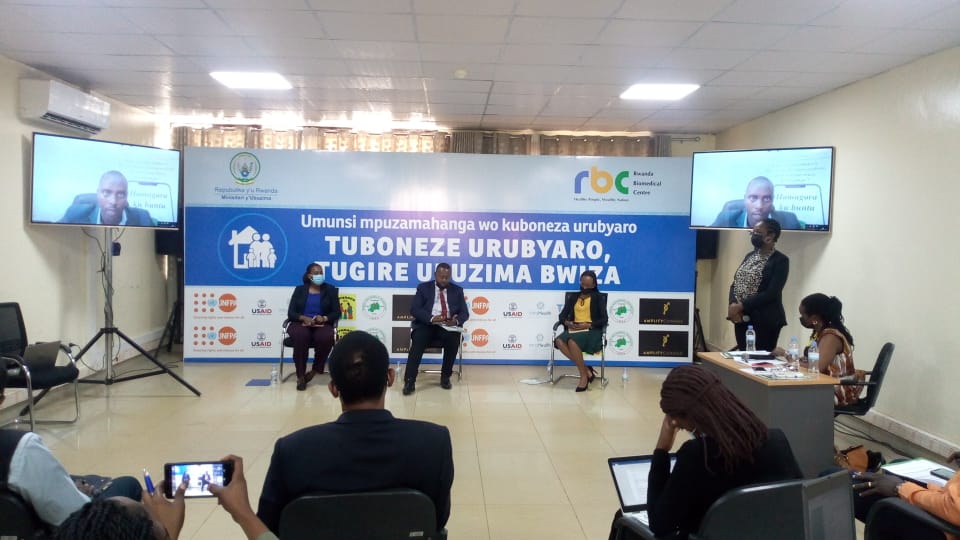Health sector stakeholders commend the contraceptive prevalence rate but pledge to remain committed to increasing effort to contribute to the best shape of family planning among families and birth control in general.
Rwanda has made tremendous progress in terms of access to contraception and family planning services, leading to the increase of contraceptive prevalence rate of 58% from about 48% in the period of recent 5 years, according to provided statistics.
Speaking to the media amid World Contraception Day 2021 celebration in Kigali,
Joel Serucaca, Community Family Planning Officer at RBC said: “Among persisting challenges to the use of contraceptive methods include: conservativeness based on beliefs and traditions, misinformation, inadequacy of health facilities, insufficiency of specialized medical doctors”
He added: “We have set objectives to improve access to information about contraception; increase training for community health workers(Abajyanama b’Ubuzima); and improve the birth control services with continuous follow-up to make sure everyone who wishes to use any contraceptive method is well helped.”
Civil society organizations as the key stakeholders in addressing the issue of family planning have among mechanisms sensitization, service provision, advocacy, trainings, among others, according to Aimable Mwananawe, Executive Director of Ihorere Munyarwanda Organization (IMRO).
“The role of civil society is huge. We still have much to do as stakeholders like increasing awareness within communities, sensitizing couples to play part in making the right decision on the right choice of contraceptive method, service providing, connecting people with service providers, and advocating for people about the laws regarding contraception. We have other strategies including organizing trainings for different individuals and entities in the health sector about the issue of health reproductive choices. So, the civil society will keep its contribution”
Using methods of contraception, family planning or birth control is not just for women as some may perceive, it implies any of the two.
“We encourage men to take part in family planning decisions. They have not to leave it for women. We do advocacy to see if there are laws that may bring in barriers for each partner to play a role in family planning. We do this through our project dubbed ‘Nibandebereho’” said Emmanuel Karamage, Field Coordinator at The Rwanda Men’s Resource Centre (RWAMREC)
Contraceptive methods include modern and traditional methods, for both men and women. Modern methods include female sterilization, male sterilization, the pill, the intrauterine device (IUD), injectables, implants, condoms, and lactational amenorrhea method (LAM). While, calendar rhythm method and withdrawal method are considered traditional.





